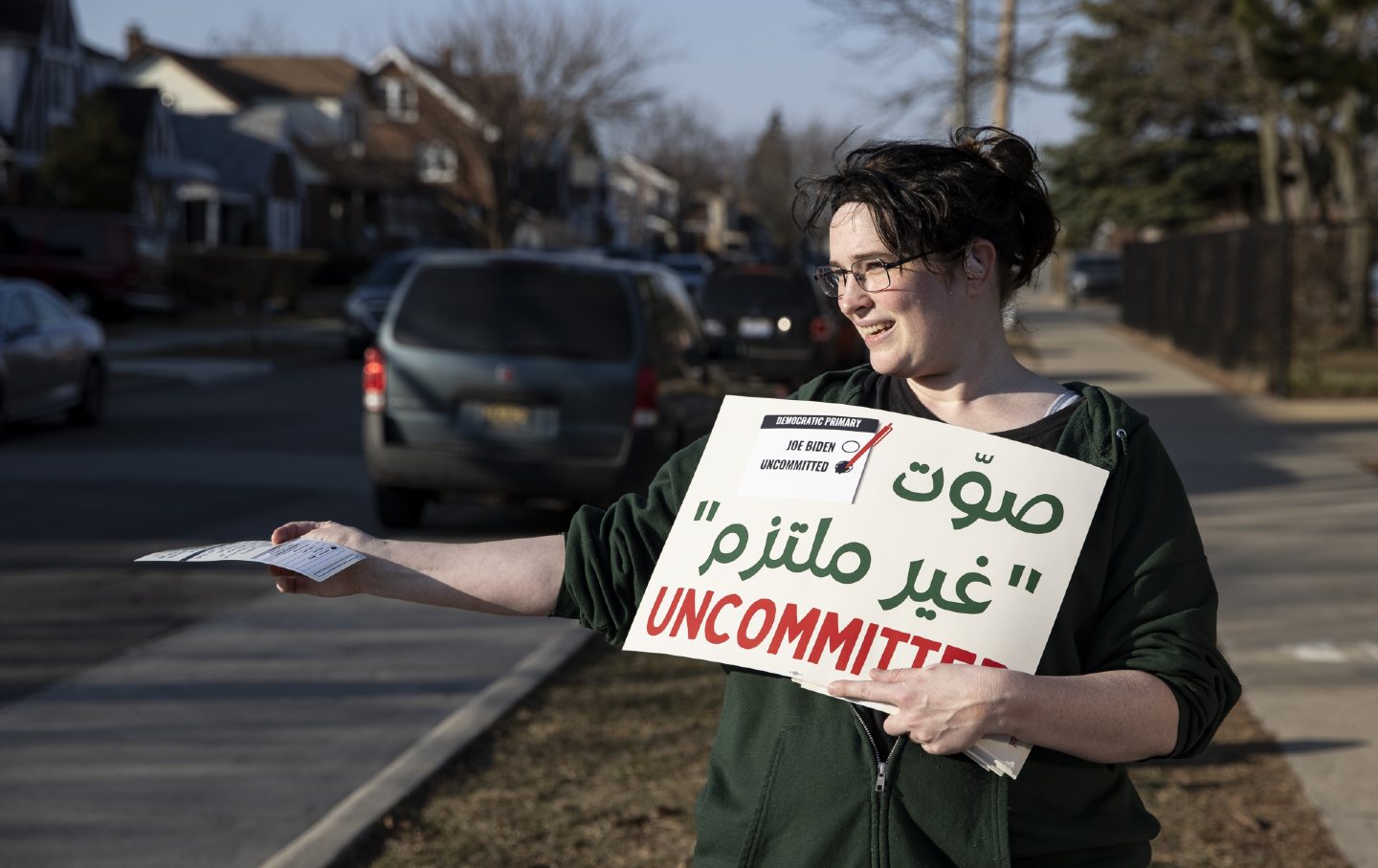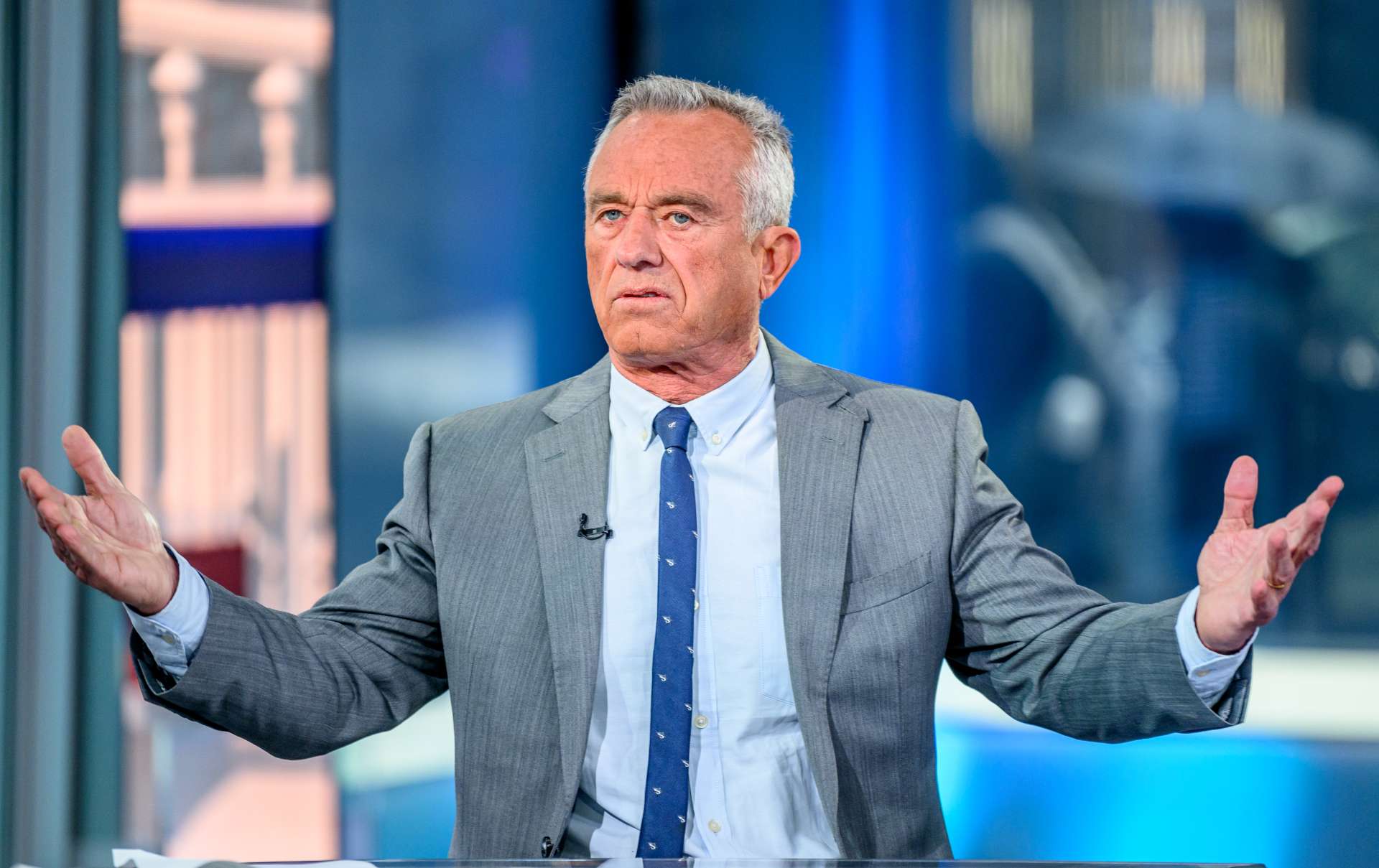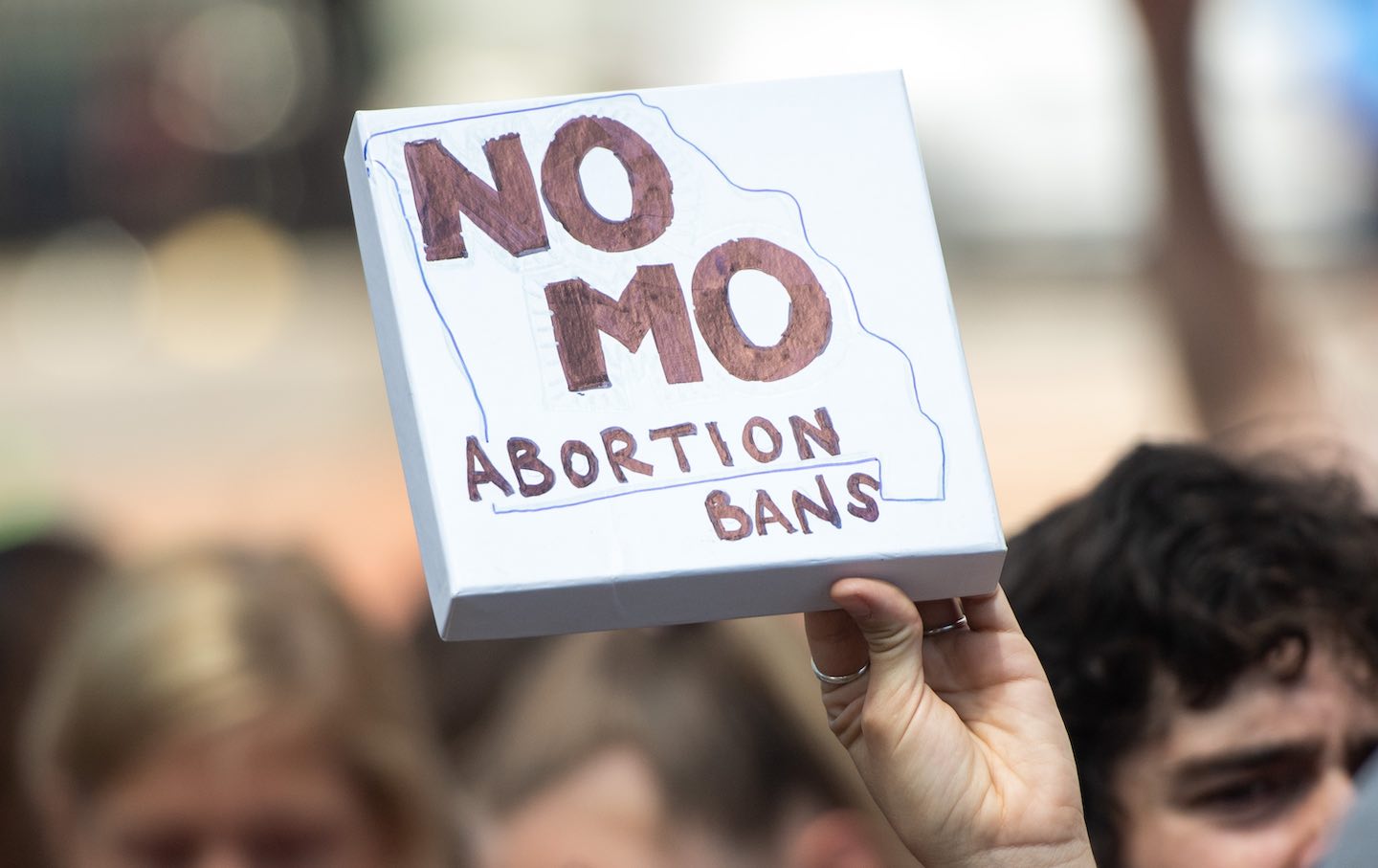
[ad_1]
Expecting voters to support the person with the power to stop the killing of their families, but who refuses to use it, is asking the impossible. This is about now, not November.

In my almost 50 years working for Palestinian rights, one thing was always certain: No one in the United States ever lost votes for being too supportive of Israel. That unchanging reality was a major barrier preventing change in congressional and White House policy. But even long-standing certainties, it turns out, don’t last forever.
Our movement has worked for years to transform the public’s, the media’s, and eventually policymakers’ understanding of what Israeli occupation and apartheid are all about. Βut in the last seven months, it has been Israel’s mercilessness—killing and injuring over 100,000 Palestinians, targeting journalists and aid workers, killing thousands of children, destroying hospitals, denying access to food and water, all playing out on our screens hour by hour—that has enraged people across the United States and around the world.
Current Issue

Israel’s actions have created a much broader movement, including many people who don’t consider themselves part of an organized movement at all but who cannot, will not stand by and ignore what they see—especially when that horror is enabled by unlimited US weapons and billions of our tax dollars provided unconditionally to the Israeli military. Many of them are part of key constituencies that made Biden’s narrow 2020 victory possible, yet they are now saying they won’t—they can’t—vote for the president supporting Israel’s assault on Gaza. And yet too many people are still asking: “How do we make sure that all those Palestinian-Americans, all those young people, all those Black people, all those Muslim and Arab and progressive people, will still vote for Biden in November?” As if this were only about the election, still six months away.
That’s the wrong question. Because this is not just about an election in November, it’s about life and too much death right now. The right question is: What do we have to do, what can we do better or differently or more powerfully, to make Joe Biden change his policy?
So far this election year, more than half a million people, a large percentage of them in swing states, have voted “Uncommitted” or “Uninstructed” to tell President Biden he has to change his policy and stop supporting Israel’s slaughter in Gaza.
In Michigan, it was over 100,000 voters; in Wisconsin and Minnesota, the number in each hovered around 50,000. Those three states, along with Washington, Missouri, and Hawai‘i, have produced enough protest votes to send “Uncommitted” delegates to the Democrats’ national convention in August.
Student protest encampments, and police actions—often brutal—destroying them, have become a global symbol of opposition to Biden’s policy. And it’s clear from how White House language and tone have shifted—now using the word “cease-fire,” urging more humanitarian aid—that the administration is hearing at least some of this new reality.
But the changing language does not yet herald a sufficient change in action. We hear that Biden is “heartbroken” over Palestinian deaths—and that emotional response may even be real. But personal heartbreak, even the president’s, is profoundly irrelevant if the broken heart does not lead to a qualitative change in policy—which in this case requires more than polite entreaties. It means stopping the money and arms shipments to Israel that enable the continuation of genocide.
A headline in November captured it well—“Biden ‘Heartbroken’ by Civilian Deaths in Gaza as He Argues Against Ceasefire.” A more recent example appeared the day Israel killed the seven aid workers from chef José Andrés’ World Central Kitchen—one of them Palestinian, the other six from the United States and Canada, the United Kingdom, Australia and Poland—with targeted drone strikes. Biden said he was “outraged and heartbroken”—but later that same day, he approved a massive shipment of bombs to the Israeli military. That shipment included 1,000 500-pound bombs, over 1,000 smaller bombs, and more. The same variety-pack of bombs that has already devastated lives and land across Gaza.
In early May, responding to the Israeli government’s plan to go ahead with its long-planned assault on Rafah, the Biden administration announced that it would, for the first time, pause one shipment of 2,000-pound and 500-pound bombs to the Israeli military. That was an important move—those giant bombs kill hundreds at a time across Gaza; every bomb held back means some Palestinian lives may be saved.
But this was one shipment, only paused. It is not an end to US military support. In a follow-up statement, Biden said he would not send offensive weapons to Israel if its troops “go into Rafah”—the small town bursting with 1.5 million refugees forced from their homes elsewhere in Gaza. But his statement ignored the reality that, alongside planes and drones bombing the town, Israeli troops were already inside Rafah—they had seized control of the border crossing with Egypt, reoccupied the area, and raised the Israeli flag on the Palestinian side of the Gaza-Egyptian boundary. The UN reported that nearly 360,000 Palestinians had already fled for their lives to escape the assault on Rafah by May 13. But administration officials still described the Israeli action as “limited,” not big enough to cut the arms to Israel as Biden threatened. So this is still far from the cease-fire, far from the arms cut-off so many are demanding.
The Uncommitted votes are clearly having an impact, on political actors surrounding the president if not yet on Biden himself. So the answer to the question of how to change his policy can’t be only about making sure Biden and his advisers hear about the Uncommitted votes, or the campus encampments and the occupations of Congress and the street protests and the sit-ins and the resignations and open letters by federal staff across dozens of agencies. The mainstream media is doing that pretty well—a few days ago, on the same day, front-page headlines in the print edition of The New York Times read “Gaza Protests Vex Democrats from White House to City Hall,” while The Washington Post weighed in with “Fidelity to Israel Snares Biden.”
Ad Policy
Answering the right question means figuring out how to make Biden recognize that reports of his frustration with Netanyahu, his heartbreak at the deaths of the WCK workers, his urging Israel to allow open access to humanitarian assistance, are simply not good enough. Until he starts to actually impose, not just hint at, real consequences—starting with making good on his own so-called “red line” threat that an Israeli attack on Rafah would result in cutting off military aid and weapons—to enforce Israeli compliance, all the tears and heartbreak in the world won’t make a difference.
Democratic Party operatives are understandably worried about the youth vote. A recent Harvard poll showed that young voters support a cease-fire five to one. But those operatives, as well as some progressive activists, are still asking the wrong question. Wrong because trying to convince people who reject the president’s military support for Israel to “vote for Biden anyway even if you disagree with him,” is just not going to work. Even though they know the consequences of Biden being defeated.
Popular
“swipe left below to view more authors”Swipe →
Why? Because those young voters know that supporting Israeli actions that even the International Court of Justice identifies as plausibly constituting genocide, is not business as usual. Opposing those actions is not just a policy disagreement. This is about hundreds of thousands of lives at risk right now, including those of Palestinians whose families and friends are voters here in the United States—lives being destroyed by US-made weapons bought with billions of our tax dollars. Asking voters to support the person holding the power to stop the deliberate killing of their families, but who refuses to do so, is asking the impossible. And it should be.
We need to ask the right question. And we need to ask it of everyone—including all those appropriately focused on the election, who are working 24/7 to prevent a Trump victory six months from now, but who have not yet channeled at least some of their energy into working for a cease-fire right now. We need to ask what else can we do now, how do we expand and strengthen our movement, how do we support students demanding a cease-fire and divestment, and federal employees ready to quit to protest US support for genocide? How do we get more people into the streets; how do we mobilize even more Uncommitted voters in the remaining primaries—enough to get Biden to change his policy? Not because of November, but because of now, today. Because Israel is killing Palestinians every day—poets, journalists, grandmothers, children. Right now. And because it’s up to us to stop it. Right now.
We have to stop asking the wrong question.
Thank you for reading The Nation!
We hope you enjoyed the story you just read, just one of the many incisive, deeply reported articles we publish daily. Now more than ever, we need fearless journalism that moves the needle on important issues, uncovers malfeasance and corruption, and uplifts voices and perspectives that often go unheard in mainstream media.
Donate right now and help us hold the powerful accountable, shine a light on issues that would otherwise be swept under the rug, and build a more just and equitable future.
For nearly 160 years, The Nation has stood for truth, justice, and moral clarity. As a reader-supported publication, we are not beholden to the whims of advertisers or a corporate owner. But it does take financial resources to report on stories that may take weeks or months to investigate, thoroughly edit and fact-check articles, and get our stories to readers like you.
Donate today and stand with us for a better future. Thank you for being a supporter of independent journalism.
Thank you for your generosity.
Phyllis Bennis
Phyllis Bennis is a fellow of the Institute for Policy Studies in Washington, D.C., and serves as the international advisor for Jewish Voice for Peace. She is the author of Understanding the Palestinian-Israeli Conflict: A Primer.
More from The Nation

Maryland’s new Democratic US Senate nominee won a bitterly contested primary. Now, she has an even tougher fight on her hands.
John Nichols

Trump’s former lawyer described in court how the former president demands total sycophancy from his underlings.
Chris Lehmann

Can a presidential candidate afford to lose gray matter to parasites?
Jeet Heer

The party has strong candidates up and down the ballot, and a referendum could bring out enough young voters to turn this red state purple.
John Nichols
[ad_2]